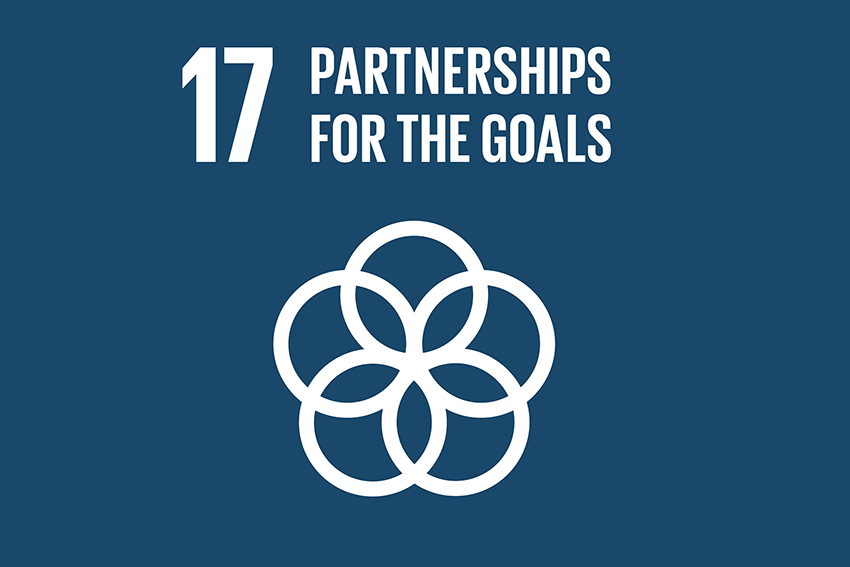
Photo Credit: globalgoals.org
This post was originally published on FHI Partners.
According to Peter Drucker, the noted management theorist, “The greatest danger in times of turbulence is not the turbulence; it is to act with yesterday’s logic.” When I reflect on my time working with private-sector organizations, government agencies and international nongovernmental organizations — all of which were focused on solving global human development challenges — I recall the common refrain that “we can’t do it alone.” Only by working together do we stand a chance to eradicate poverty and promote prosperity. But sentiment alone is not enough.
The promise of partnerships has resulted in an active body of work focused on facilitating public-private partnerships and devising private-sector engagement strategies, with the Sustainable Development Goals at the center of this dialogue. Specifically, private-sector involvement is increasingly called upon to drive global socio-ecological change. The increasing overlap between development and commercial challenges provides fertile ground for robust collaboration. However, we need to move beyond the announcements, handshakes and high-level dialogue.
As actors in the development arena, we must evaluate our long-term objectives, whom we work with to achieve those objectives and the changes we must undergo to effectively work with an increasingly dynamic group of partners. The prospect of increased collaboration is accompanied by the responsibility to hold each other accountable to deliver value and results in a financially sustainable fashion.
We must continually challenge ourselves to build on our strengths and lessons learned while embracing new ways and approaches to collaboration in order to attain transformational results. To this end, I say to the art of partnering, “We M.U.S.T. do it better together.”
But what do I mean by M.U.S.T.? We M.U.S.T.:
Maintain momentum that is motivated by the challenge. The issues we are trying to address are inherently difficult, complex and multifaceted. The tougher the issue, the more we should be willing to operate outside of our comfort zones and well-worn grooves to pursue new and different means, more partners and bold, collective strategies.
Unite uncommon alliances forged from common strategic objectives and shared values. We should reach beyond our familiar group of allies to identify and work with others who share similar or complementary goals.
Shape our systems, processes and organizational culture to support and facilitate increased collaboration both internally and externally. Our organizations’ successes are steeped in well-established procedures and storied histories. However, we need to take a hard look and assess the things we need to change internally in order to evolve into organizations that can operate in the ever-changing, uncertain landscape of tomorrow.
Trust, try and try again. Only through continued effort will we ever achieve the desired result. At times, we may be operating with imperfect information or in unfamiliar spaces with new partners. Simply stated, we will have to take leaps of faith with the full knowledge of the risks involved and understanding that all collaborations will not always work out on the first try – but we’ve got to keep at it.
Through the establishment of FHI Partners, FHI 360 is embracing its 40-plus years of experience as an international human development organization, taking a leadership position in moving collaboration in this field forward. Created with the mandate to more effectively engage with corporations and foundations seeking to expand their social impact, FHI Partners is tackling a familiar challenge in a new way. While working with the private sector is not new in our industry, FHI Partners seeks to operate on the leading edge, driven by accelerating and amplifying outcomes while delivering a strong value proposition to our clients. We look to leverage the full breadth of FHI 360’s expertise, programs and global platform to bring solutions to a wider array of organizations. Our goal is to serve as strategic advisors, results-driven implementers and honest brokers for our corporate and foundation partners.
We must continually challenge ourselves to build on our strengths and lessons learned while embracing new ways and approaches to collaboration in order to attain transformational results. Click To TweetI am both excited by the opportunity and sobered by the effort it will require to be successful in this endeavor. There is a tremendous appetite in today’s environment for improved collaboration, and we are identifying many like-minded partners interested in working together. However, this doesn’t mean it’s going to be easy. FHI 360’s management team has undertaken difficult steps to establish this new subsidiary as a way to proactively engage with stakeholders outside of the organization’s customary government and donor clients. We are challenging ourselves to continually evolve as we navigate through the growing pains of figuring out how to work differently within our organization. That said, FHI Partners has made significant strides in laying the foundation for growth within our first year of operations. We’re engaging with new foundations and corporations while expanding on FHI 360’s work with well-known clients. Across our portfolio, we are engaged in a variety of health, education and workforce development efforts in 11 countries to date.
We acknowledge that reshaping systems, processes and culture takes time, and we are only at the beginning of our journey. We know that we will face unexpected obstacles, but none will compare to the challenges and issues we are trying to address in our collective efforts to positively impact the lives of others.
One of my favorite African proverbs states, “If you want to go fast, go alone. If you want to go far, go together.” FHI Partners is here for the long haul, and we invite you to journey with us to audaciously overcome some of the world’s complex, intractable problems. Those we seek to serve deserve nothing less.
